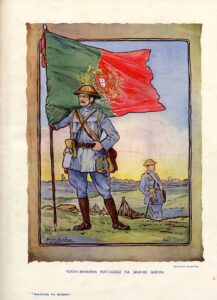By: MARGARET BROWN
ALTHOUGH THE festival of All Saints falls on November 1, in the Anglican Church it is celebrated on the nearest Sunday after that date to honour all saints and martyrs past and present.
The Feast of All Souls on the day following is sometimes incorporated in the same church service, prayers being said for the faithful dead who have not yet atoned fully for their sins. Where ancient pagan rites continue to be practised by the people of Latin countries, it is customary on that day to place flowers on graves and at night to leave offerings of food and water in case the visiting spirits need refreshment. In Brittany, relatives of the departed also anoint the headstones with holy water or milk.
For the Portuguese, the Feast of All Saints is a national holiday and it is traditional to keep overnight vigils in the cemeteries. This is followed by morning Mass, after which family members gather together from around the country to celebrate.
Each year at Nossa Senhora da Luz church, a blank sheet of paper is placed on a lectern outside the church door on which members of St. Vincent’s congregation write the names of their deceased loved ones. Intercessions are also said for those who have died in the service of others: firemen, members of the armed forces, church workers, healers of the sick and many more besides who have been sacrificed for the general good.
Every day saints are just doing their job until called upon to lay down their lives, unrecorded in history but remembered by family and friends.
The ultimate sacrifice was Christ, the cornerstone of our faith: preceded and followed by a sanctified host, none of which was perfect yet who struggled and overcame their shortcomings in the service of God.



















